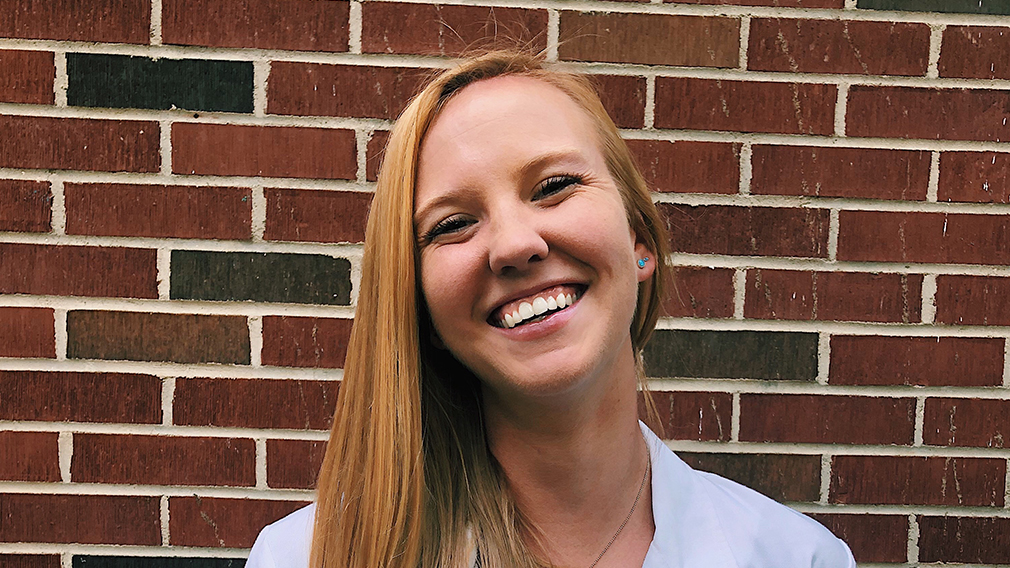While she was studying biochemistry at the Anderson University College of Arts and Sciences, Rebecca Bruning knew she wanted a healthcare career and was trying to decide on her best fit. A professor’s comment clinched her decision to become a pharmacist.
Bruning came to Anderson University as a student-athlete to play women’s tennis. Competing in an NCAA Division II program meant she could achieve balance between her studies and her sport. Being a three-time All-American as a Trojan, she excelled at tennis; she also wanted to be well-prepared for a rewarding livelihood that helps others.
“I knew tennis wasn’t going to be my career, so I really wanted that balance and ability to explore what my career would be,” Bruning said. “I also really liked the fact that Anderson is more of a close-knit campus.”
“I was considering a lot of the things that most people would consider, like med school or PA (physician assistant) school or nursing. I had a professor who said that pharmacy is basically applied biochemistry,” Bruning said. “Since I enjoyed my major so much, I was like ‘Oh my gosh, I think this is what I have to try to do.’”
As she researched the pharmacy profession, Bruning quickly became aware that pharmacy professionals do much more than just count pills or serve as a middleman to insurance or pharmaceutical companies.
After graduating from Anderson University in 2017 with her B.S. in Biochemistry, Bruning entered the Doctor of Pharmacy (PharmD) program at the University of Georgia. Currently in her fourth year, she feels her Anderson University education prepared her not only with a robust complement of courses in the sciences but also prepared her to be a better student. College of Arts and Sciences professor Dr. Carrie Koenigstein encouraged Bruning and her classmates to figure out their study methods and use them to their advantage.
“People learn differently; some can sit, listen and remember a lecture; those like me are more visual and kinesthetic and need to read the notes and make their own summary and adaptation,” Bruning said.
While at Anderson, Bruning also assisted heart patients and their families in AnMed Health’s catheterization lab and volunteered at the Anderson Free Clinic. She also served on the Student-Athlete Advisory Committee.
“Rebecca stood out as an outstanding student from the very beginning, even balancing the demands of varsity athletics along with a challenging major. It is no surprise to any of us that she has continued to excel,” said Dr. Koenigstein, associate professor of biology and chemistry.
Bruning wants the public to be aware of the importance of pharmacy professionals in health care and believes it’s important for pharmacists to be patient-centered. She’s also interested in the interrelationship of pharmacists, doctors and nurses as part of an interdisciplinary team.
“There have been a lot of studies that show that pharmacist involvement in interdisciplinary teams working with nurses and doctors—that pharmacist presence has really improved patient outcomes and reduced costs for the hospital because they are using drugs more appropriately,” she said.
Bruning also appreciates the role of pharmacy professionals in the midst of a global pandemic, serving on committees that are reviewing the various vaccines for emergency use authorization. She believes that educating the public is critical to combating misinformation about the effects of the various COVID-19 vaccines.
Upon graduation, Bruning plans to do her residency at University of Kentucky Healthcare, pursuing a specialization in either infectious diseases or critical care.
Her advice to others considering a career in pharmacy is to keep an open mind and move past preconceived notions they might have of what a pharmacist does. She hopes possibly to pay it forward to future students and serve in a mentorship role.

